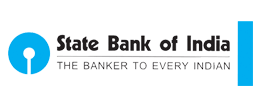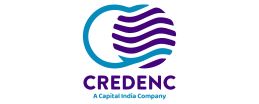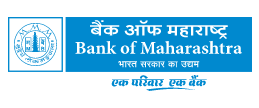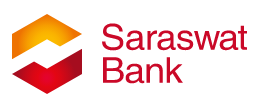Education Loan for Abroad Studies

Every student’s dream is to study at a prestigious university in a foreign country. If given the opportunity, students would undoubtedly pursue their higher education at their dream university abroad and graduate with honours. However, funding study abroad may cost the student an arm and a leg.
Students may have to do some cost-cutting or rely on scholarships to fund their studies. But what if you can’t save money? Who will pay for your international education? Do not be concerned if you are dwelling on this. Here’s a solution: students can get an education loan for abroad studies.
Education loans are a lifeline for students who want to pursue their dream of studying abroad but lack the necessary funds. Education loans are available from Indian financial institutions for both domestic and international studies.
Since the number of people studying abroad has steadily increased, so has the number of banks offering education loans for overseas studies.
Types of education loans for Abroad studies
- In India, there are two types of education loans for Abroad Studies
Secured education loan for international studies:
Secured education loans are only available to students who have acquired a security to pledge as collateral in order to obtain an education loan. In India, these loans are mostly provided by government/public banks.
What are the loan limits and interest rates on collateral education loans?
- Collateral education loans are regarded as the best option for financing your studies both abroad and in India, as you can borrow up to 1.5 crores or even more if necessary. The amount is determined by The value of the pledged collateral and the total loan amount (tuition, living expenses, travel expenses, etc.)
- As of January 2023, the interest rate on a collateral education loan ranges between 7.65% and 9% in public banks and begins at 10.5% in private lenders.
How does one apply for a secured education loan?
You can begin your education loan for abroad studies application as soon as you receive your university admission letter.
- You must complete the loan application form provided by the bank. (With We Make Scholars, you would only have to fill out one common application form that can be forwarded to all the banks).
- Following that, you must submit all required documents to the bank’s branch. (We will provide you with a checklist of documents for various banks).
- The bank will then appoint a lawyer and a valuator for your collateral (for only immovable properties), for which you must pay the bank a fee of $7,500 to $8,500. They will provide the bank with a legal and valuation report on the pledged collateral.
- The bank will send these reports, along with other submitted documents, to the central loan processing cell that handles the education loan process after receiving the legal and valuation reports.
- The loan processing officer will look into your loan application and verify it, and once completed, they will sanction the loan.
- After paying the processing fee, you will receive a sanction letter for your loan, which will be valid for about 6 months.
- Finally, you and your co-applicants must submit all original property documents to either CPC or branch for mortgage creation. It entails stamp papers, affidavits, and other fees of approximately 0.5% of the loan amount, after which the account is ready for the loan amount to be disbursed.
- Obtaining a collateral education loan from a public bank can be a time-consuming process, as they typically take 45 days to 2 months to sanction an education loan.
Which banks offer collateral education loans?
Public banks, such as the State Bank of India (SBI), the Bank of Baroda (BOB), and others, offer collateral education loans at lower interest rates.
What can I use as collateral for a student loan?
You can get a secured education loan with either immovable or liquid security. Immovable property includes flats, houses, and lands with clear demarcation, while liquid securities include Fixed Deposits, insurance policies, and government bonds, among other things. Few banks accept third-party collateral, which includes property owned by friends, relatives, or anyone else.
Quantum of Finance:
- BOB up to INR 1.5Cr (Premier listing)
- BOB up to INR 80.00 lakhs (Non-Premier listing)
- SBI up to INR 1.5Cr lakhs
- Axis Bank/ ICICI Bank up to INR 75 lakhs
*Note:* Loans for amounts more than 80 lakhs can also be processed depending upon property valuation.
Conditions for Collateral offered:
- The property offered as collateral should not be Rural or Agricultural
- Residential houses, flats, open plots, and commercial properties can be accepted as collateral
- The loan amount depends upon the valuation of the property; the loan amount can be 70-80% of the property value
- If the Property is an Open Plot, it should be properly demarcated
Rate of Interest
- ROI for secured loans varies between 9-10.50% p.a. from Nationalized Banks
- 0.50% concession in ROI is given to female students
Margin Money:
The margin may differ from bank to bank, some banks give 85% + 15% or 90% + 10% or 80% + 20% or 100% also.
For ex: If the margin given by the bank is 85% + 15% and the cost of education is = Rs. 40.00 lacs then the Bank will fund: Rs. 34.00 lacs & Parents need to fund: Rs. 6.00 lacs.
Processing Fees
- Processing fees for a Secured loan is Rs. 10,000 + GST/- *
- Fees for the Search Report and Valuation report will be approx. Rs. 7000 – 10,000/-
- Stamp Duty amount to be paid at the time of Property Mortgage + Stamp Paper must be purchased by the student
- It is mandatory to issue the Insurance Policy towards the loan amount sanctioned. The policy amount will be clubbed with the Principal Loan amount.
Unsecured education loan for international studies:
An education loan without collateral, also known as a non-collateral education loan, is obtained without pledging any collateral to the lender. This means that applicants can obtain a loan with no collateral, such as a house or land. Students can borrow up to 50 lakhs for education.
Unsecured education loans are only available to students who do not have collateral to pledge. In India, these loans are mostly provided by private banks/NBFCs or international lenders.
They adhere to strict eligibility criteria here. To obtain an unsecured loan, students must bring a strong financial co-applicant, i.e. someone with a stable income source who files ITR.
What is the loan procedure for an education loan that does not require collateral?
- The loan process for education loans without collateral is quick and easy. The following is the procedure for obtaining an education loan without collateral:
- First, complete the online application form.
- Collect the most recent document checklist from the We Make Scholars team. Once you have submitted the documents, We Make Scholars and bank officials will verify them and send them to the processing center.
- The loan is sanctioned after the processing officer verifies the application.
- You will be required to sign the documents once the loan has been approved.
- A disbursement agreement is signed, and the loan amount is disbursed.
Which banks can you approach for a no-collateral education loan?
Education loans are available from both public and private banks. The difference represents the loan amount. Public banks can only lend up to INR 7.5 lakhs, whereas private banks can lend up to INR 40 lakhs. There is also the option of using NBFCs, which operate similarly to private banks. SBI, BOB, Axis, ICICI, Avanse, Incred, and other banks offer unsecured loans.
Unsecured Education Loans from Public Banks
According to their policies, public banks such as SBI, BOB, and others can only provide up to 7.5 lakhs in student loans without collateral, regardless of the course or country. However, for some top-tier institutes in India, SBI offers unsecured education loans of up to 40 lakhs.
Unsecured Education Loans from Private Banks
Private banks can provide education loans of up to $1 million for overseas studies with no collateral. As previously stated, these banks only approve unsecured loans for a select group of top universities. With an interest rate of 10.5% or higher, private banks can fund both PG and UG programmes.
Here are the top private banks for an unsecured education loan.
- Karur Vysya Bank
- ICICI Bank
- Axis Bank
- IDFC First Bank
- HDFC Bank
NBFCs for Unsecured Education Loan
A Non-Banking Financial Company (NBFC) is another option for Indian students, as there are four NBFCs in India that offer unsecured student loans. NBFCs determine the loan amount based on the student’s choice of country, such as the United States, which can fund up to 60 lakhs at an interest rate of 11-12%, Canada, which can fund 35 lakhs at an interest rate of 12-13%, the United Kingdom, which can fund 45 lakhs, Germany, which can fund 20 lakhs, and Australia, which can fund 30 lakhs at an interest rate of 12-13.5%.
Foreign lenders
Foreign lenders, such as Leap Finance and Prodigy Finance, can cover up to 80% of your total expenses. Their interest rate is around 9.25-16%, but because it is based on the London Interbank Offered Rate (LIBOR) rather than the Marginal Cost of Funds Based Lending Rate (MCLR), it reaches around 14-15% when converted to INR, making it the most expensive unsecured education loan option.
Quantum of Finance:
- For USA: Up to INR 50-55 lakhs*
- For other countries: INR 30-35 lakhs*
- Axis Bank up to INR 40.00 lakhs (Prime ‘A’ listing- Unsecured loan)
- Axis Bank up to INR 25.00 lakhs (Prime ‘B’ listing – Unsecured Loan)
- BOB/ SBI up to INR 7.5 lakhs (Unsecured Loan)
Conditions for Non-Collateral Loans:
- Student’s Academic background
- GRE score: 300 +
- TOEFL score: 90+ or IELTS score: 6.5 Bands
- Masters / PG Diploma courses
- Parents Annual Income- More than 5-6 Lakhs per annum
Rate of Interest
- ROI for secured loans varies between 10% – 13% p.a. from NBFCs and Private Banks.
Margin Money:
- 100% funding is provided by NBFC
Processing Fees:
- Processing fees of NBFC are generally 0.75-1.5% of loan amount + GST
Eligibility criteria
Overseas education loans are broadly divided into two types. There are two types of overseas education loans: secured and unsecured. Most Indian banks offer deserving candidates these overseas education loans at a lower interest rate and with flexible terms and conditions.
It is not difficult to obtain a loan, but it is critical to meet the eligibility criteria when applying for it. Check out the basic eligibility criteria that must be met when applying for a study loan to study abroad.
- The student must be an Indian national.
- The loan applicant must be at least 18 years old; otherwise, his or her parents must apply for the loan.
- The candidate must have a strong academic background.
- Admission to a recognized foreign university, institution, or college is required.
Eligibility Criteria for Secured Overseas Education Loans
Secured overseas education loans are obtained in exchange for collateral security, which is typically in the form of real estate. To be eligible for a secured education loan, you must meet the eligibility requirements.
- Your property should be classified as Municipal Corporation, Improvement Trust property, or Nagar Parishad property.
- If you pay Gramme Panchayat or Nagar Panchayat tax on your agricultural land or farmhouse, you should be aware that such properties are not eligible for secured loans under RBI guidelines.
- Layout plans and building plans, for example, should be approved by their respective departments.
- A 30-year chain of documents is required to obtain a secured education loan.
- Banks typically consider only 80-85% of the property’s market value when determining loan amounts.
- For secured education loans, parents’ CIBIL scores should be greater than 700 and they should have a good credit history.
Eligibility Criteria for Unsecured Overseas Education Loans
Unsecured overseas education loans are obtained without the provision of collateral security. This type of loan is typically provided based on the loan applicant’s and co-applicant’s income tax return (ITR) and CIBIL scores. So, let’s look at the eligibility requirements for this loan type now.
- The parent’s annual income should be greater than 6 lakhs, and there should be no liabilities for unsecured overseas education loans.
- If the parent owns a business, they must provide their ITR as well as balance sheets, profit and loss statements, and business registration certificates.
- For parents with unregistered businesses, Udyog Aadhar registration is required.
- For unsecured education loans, parents’ CIBIL scores should be greater than 700 and they should have a good credit history.
- If the parents are farmers and have not filed their ITR, the student can still qualify for an unsecured education loan of 50-60 lakhs based on their GRE scores. However, the GRE score should be 300 or higher. Furthermore, the ITR of the parent is not required.
- If the student is admitted to one of the top 150-200 universities in the world according to the QS World Ranking, they can obtain an unsecured overseas education loan of 20-40 lakhs INR from national banks based on their parents’ average income.
- These are the eligibility requirements for international education loans. Given that you are now aware of your loan eligibility. The next thing you should know is what documents are required for loan application and processing.
Documents required for education loan for abroad studies
Student applicants:
- Identification (anyone): Aadhar Card, PAN
- Proof of residence or address (either type): a recent telephone bill or an electric bill
- Passport
- Academic Achievements: 10th and 12th grades.
- Graduation Status: Semester-by-Semester (if applicable)
- Admission was obtained through an entrance exam (GMAT, GRE, TOEFL, or IELTS).
- Letter of Offer or Admission from the Applied University or Institution
- A conditional admission letter may be considered in many cases.
- Expense Schedule or Statement of Study Cost
- 2 passport-sized photos
- Last one-year Account Statement if there has been a previous loan from another bank or lender
KYC Documents of student and Co-applicant:
- Pan card
- Aadhar card
- Passport (only student)
- Electricity bill as proof of Residence
In the case of co-applicants
- Identification (anyone): PAN, passport, driver’s license, or voter identification card
- Proof of residence or address (either type): A recent copy of a telephone bill, an electricity bill, or an Aadhaar card, as well as two passport-size photographs
- If you have a previous loan from another bank or lender, please provide a 1-year account statement.
For Salaried Co-applicant or Guarantor Income Proof:
- 3 months’ salary slip or salary certificate
- Copy of Form 16 for the previous two years
- Copy of IT Returns for the previous two fiscal years, acknowledged by the IT Department
- Six months ago Statement of Bank Account (Salary Account)
- Pension Passbook for the previous 12 months, as well as the Pension Order (in the case of Pensioner Parents)
For Self-employed Co-applicant or Guarantor Income Proof:
- Business registration proof
- 2 years IT returns
- Last 2 year’s calculation of Income, Balance Sheet, and Profit and Loss A/c
- Bank Account Statement for the last 6 months
Documents For Pensioners(Secured Loan)
- Pension order/certificate
- 1-year bank statement
- 2 Years IT Returns (if available)
Documents for property loan(Secured Loan)
- Latest tax receipt
- Electricity bill
- Registered property title deed
- Registered Sale Agreement
- Original registration receipt
- Allotment letter
- Mutation document (Aakhiv patrika) Index 2
- Building permit letter
- Sanctioned layout map / Approved building plan of property
- Last 30 years of sales record
Documents for flat(Secured Loan)
- Deed of declaration
- NOC from society
- Society registration certificate
- Occupancy certificate
- Shares certificate
- Allotment letter
Aside from the documents listed above, the following are required for a Secured Loan:
- Registered Sale Agreement for a Property Title Deed
- The original registration receipt for the aforementioned agreement
- Allotment Letter from Municipal Corporation / Authorized Government MHADA, CIDCO, etc. Please include HUDA, DDA, JDA, GIDC, and others.
- Previous chain of sale deed establishing title.
- Recent property tax or electricity bill bearing the same address.
- Tax Receipt
- Approved Building Plan
- Mutation Document
- Bill for Electricity
The documents listed above cover the majority of what is required, but the list is not exhaustive. Depending on the financial institution you approach, there may be changes or additions.
We know it’s a long list, but don’t worry, just contact Triumph Hub and get complete assistance from the start of the process to loan approval. We make it even easier for you by partnering with Elan Loans for all procedures and loan-related work.
Elan Loans in turn are tied up with multiple banks which are the following:















If you are doing the study abroad process with us then it is easier for us to assist you get the loan. Since we know your profile deeply we can contact ELAN Loan and share your profile with details and from there ELAN Loan will get the job done based on your profile and requirements.
Even the most remote possibility of education loan denial can be avoided by contacting our Experts at Triumph Hub, who will walk you through the entire process and ensure that you are the best fit for availing Student Loans for studying abroad.


1 Comment
Lowell Hampton
August 14, 2023To the triumphhub.com administrator, You always provide clear explanations and step-by-step instructions.